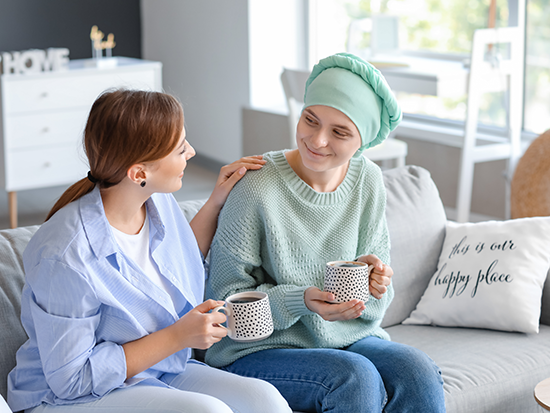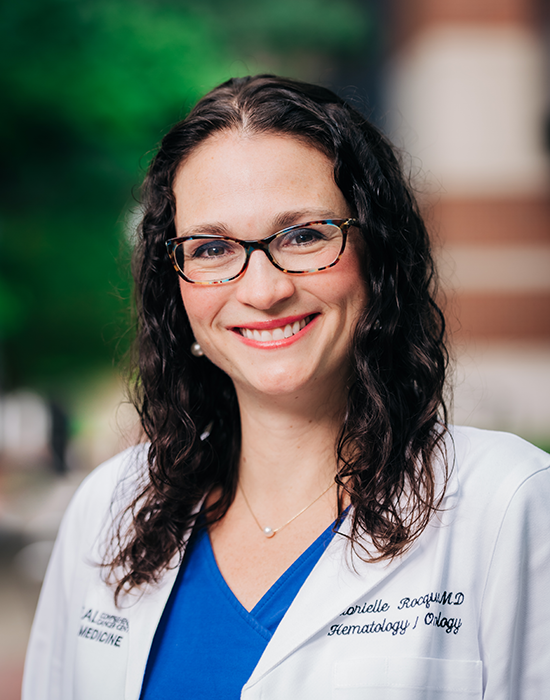 After a loved one receives a breast cancer diagnosis or surgery, it is important for caregivers and support partners to know how they can best help the patient during the difficult time.The emotional and physical toll breast cancer has on a patient can be astronomical, but the impact on those loving and caring for patients can also be large. One University of Alabama at Birmingham expert provides recommendations for friends and family of those living with the pink ribbon.
After a loved one receives a breast cancer diagnosis or surgery, it is important for caregivers and support partners to know how they can best help the patient during the difficult time.The emotional and physical toll breast cancer has on a patient can be astronomical, but the impact on those loving and caring for patients can also be large. One University of Alabama at Birmingham expert provides recommendations for friends and family of those living with the pink ribbon.
After diagnosis
After a loved one receives a breast cancer diagnosis, Gabrielle Rocque, M.D., associate scientist in the O’Neal Comprehensive Cancer Center at UAB, says, it is important for caregivers to know how they can best support the patient during the difficult time.
“For those who are very close, such as a spouse or children, I think it is important for them to be present at doctors’ appointments, if possible,” Rocque said. “There is a large amount of information that is shared at visits, and if someone can help take notes and think of questions to ask, it can help remove a lot of stress from the patient.”
Rocque also recommends sitting down with the patient before going to their appointments to think through any questions they have, take note of them and then help remind them of those once at the appointment.
“Being able to facilitate communication and patient engagement can be a very empowering role for caregivers,” Rocque said.
Another way friends and family can help meet a physical need breast cancer patients have after a diagnosis is securing transportation to and from treatments.
When supporting patients with emotional needs, Rocque says, lending a listening ear can be all that is needed.
“Allow the patient to talk, and offer them a safe space where they can share what they are going through,” she said. “As a support partner, do not feel as though you need to fix anything. It can be meaningful to patients to just have someone listen while they process what is happening to them.”
Post-treatment
The time following a procedure or treatment can be hard as the patient may not be able to complete their day-to-day tasks. Rocque says the following ways can be helpful to a patient and their family:
- Set up a meal train
- Arrange for a cleaning company to service their house
- Assist with transporting children to extracurricular activities
- Provide child care after school hours
- Deliver groceries
 Gabrielle Rocque, M.D.
Gabrielle Rocque, M.D.
Photography: Andrea MabryIn addition to the physical needs, emotional needs after surgery can be great for the patient as well as their loved ones. During their recovery time, Rocque says, it is important not to add additional stress to the patient.
“Picture a target, and if the patient is at the center, then the next ring would be their immediate family, and it would keep moving outward to those least close in relation,” said Rocque, who is also an associate professor of medicine in the UAB Division of Hematology and Oncology. “When going through a breast cancer journey, people should share their emotional stress and look for support for people in the same ring or an outer ring. This minimizes the burden on the patient and those caregivers who are providing the most support for meeting others’ emotional needs.”
A great way to help with this can be to assign a point person for communication. This individual can be a close friend or family member who will receive updates from the patient and disseminate the information to their group of supporters.
“This can help update everyone throughout the journey without the patient’s having to be overwhelmed with the task.”
Caregivers should also be aware that, after cancer treatments, some patients might not have a taste for the same foods because they may taste different. Rocque recommends giving them opportunities to try different foods, not forcing them to eat, and encouraging them to eat healthy when they can.
Warning signs
These emotional stressors that come with a breast cancer journey can weigh heavily on patients, but at what point should caregivers and support partners reach out to professionals?
“Any time,” Rocque said. “We encourage people to reach out to us any time there are any concerns. Do not hesitate to notify us if it seems that a patient may be struggling.”
Physical symptoms that caregivers should be on the lookout for after surgery include:
- fever
- new redness
- pus
- a sudden rash on the chest area
If any of these symptoms occurs, reach out to the patient’s oncologist for medical advice.
To learn more about the latest surgical techniques and radiation oncology treatments in breast cancer care at the O’Neal Comprehensive Cancer Center, click here.